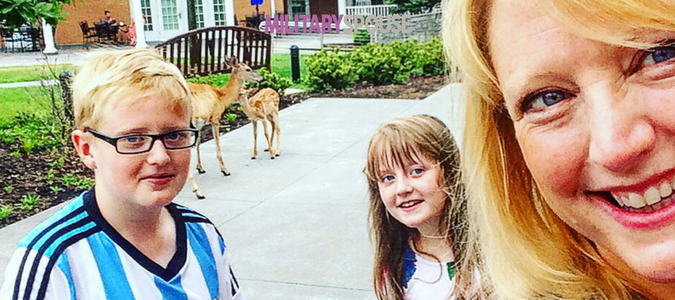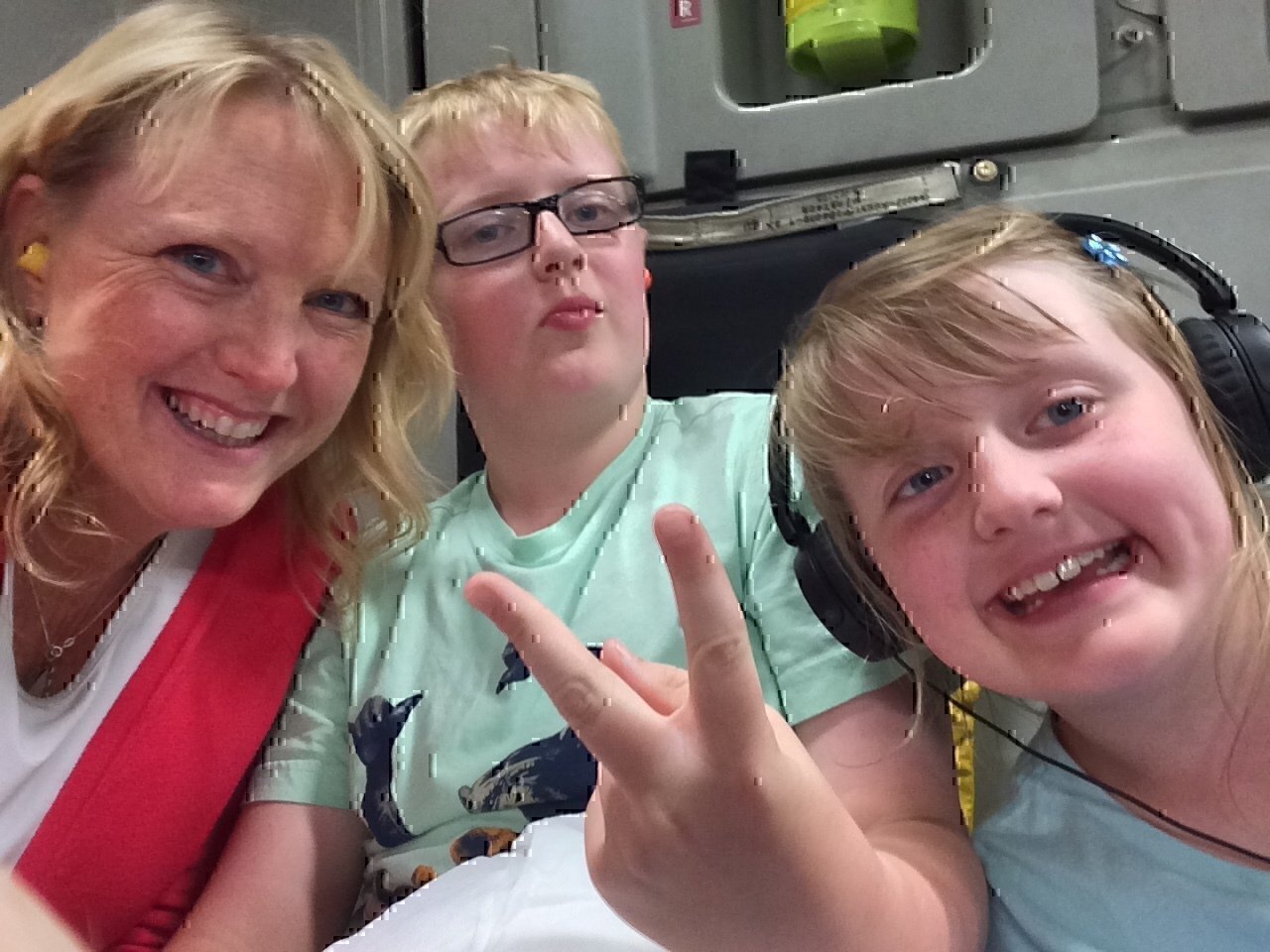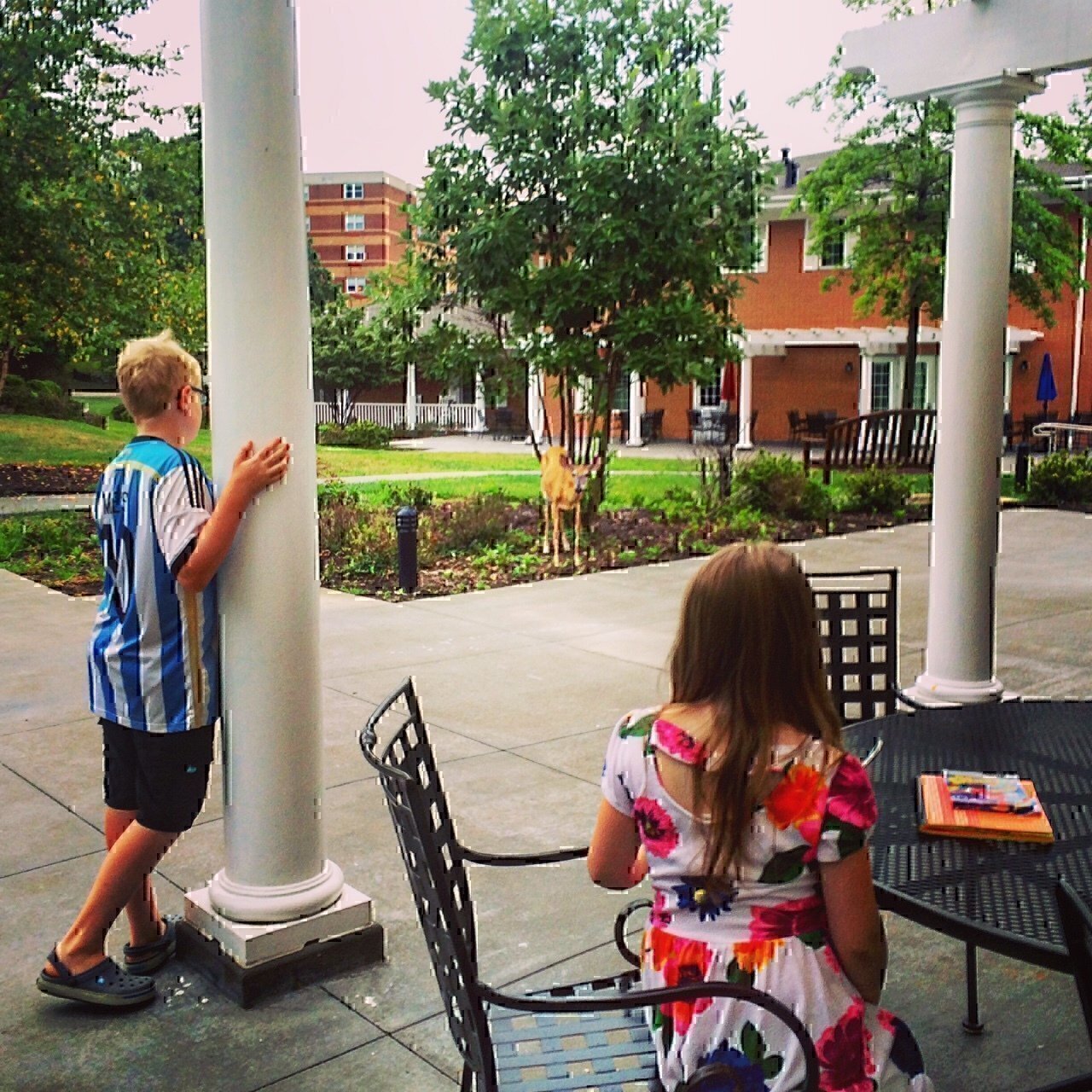Everyone in the military community has heard of the Fisher House Foundation.
Most us have some idea of the services they provide to our community. However, only a small percentage – the ones who are in most need of their services – can truly understand the power of the Fisher House and the military medicine teams they support.
But would it surprise you to know that the beginnings of the Fisher House started by a military spouse? Of course, not!
The idea behind the Fisher House was born from the hearts of military spouses and the needs of wounded warriors. Pauline Trost, a Navy military spouse and founder of the Fisher House, writes that her idea for supporting military families through medical difficulties came from her life experience as military spouse.
“In the mid-1970’s, as I came onto the grounds of the National Naval Medical Center, Bethesda for a clinic visit, I saw a helicopter land at the medical center heliport. A sailor, his wife and two children came down the steps with their luggage. I wondered where they would stay. Living in the D. C. area, I knew that hotels and motels in the Bethesda area were expensive and likely beyond the means of couples such as this one. These thoughts remained on my mind for years.”
“When my husband became the Chief of Naval Operations in 1986, I thought this might be a good time to pursue my dream of providing affordable temporary housing for families of those facing a medical crisis at Bethesda. I spoke with Mrs. Iris Reiman, then president of the Washington area Naval Officers Wives Club, and asked her if she would explore how members felt about taking on such a project. She brought up the subject at next meeting and reported agreement on planning the concept. We originally thought about finding an unused or underused building on the medical center grounds which could be converted into a place for people to stay on a temporary basis.”
Little did Pauline Trost know her vision for temporary housing and the dedication of building entrepreneur, Zachary Fisher, would change the lives of thousands of military families – including mine.
My little family is stationed in Germany. For over a year, my eight-year old daughter was plagued with infections. The military pediatric doctors on base are amazing, but the reoccurring infections were outside their scope of knowledge. We were referred to the German medical system at Homburg Children’s Hospital.
Medicine is medicine, right? Specialist are specialists, right? Not so fast. Germany’s medical community is based on socialized medicine, which means their protocols and standards differ from American medicine. They have amazing doctors, absolutely competent. But, between the intense language barrier (only doctors speak English, most of the other staff typically does not) the standard of care and the paper bureaucracy – they struggled with understanding my daughter’s condition and care.
It was at that point when I was presented with another option – Walter Reed National Medical Center. My daughter was authorized to return the states for medical evaluation and treatment. Depending on outcomes, we would have to stay up to a month in Maryland – just myself, my young son and daughter – my husband would not be able to join us due to his mission.
My husband and I were really nervous about how much it might cost for us to stay in a hotel, apartment or TLF for that long. Between meals, transportation, child care, medical appointment, possible surgery and recovery, and accommodations – the experience felt heavy with worry and fear of the unknown.
That’s where the military medical staff at Ramstein AB and Andrews AFB became our angels and Fisher House became our extended family.
The absolute professionalism of the Aeromedical Evacuation Teams or MEDEVAC at both Ramstein AB and Andrews AFB teams were amazing. From the first moment of our journey – walking through the doors at USO at Landstuhl Army Hospital – I was amazed. The Landstuhl USO was already wide awake preparing a hot meal for us and all medical passengers before our trip across the pond.
Young soldiers and airmen returning from far away lands for a flight back to Walter Reed for medical care engulfed my young children. It was a profound experience because it had been 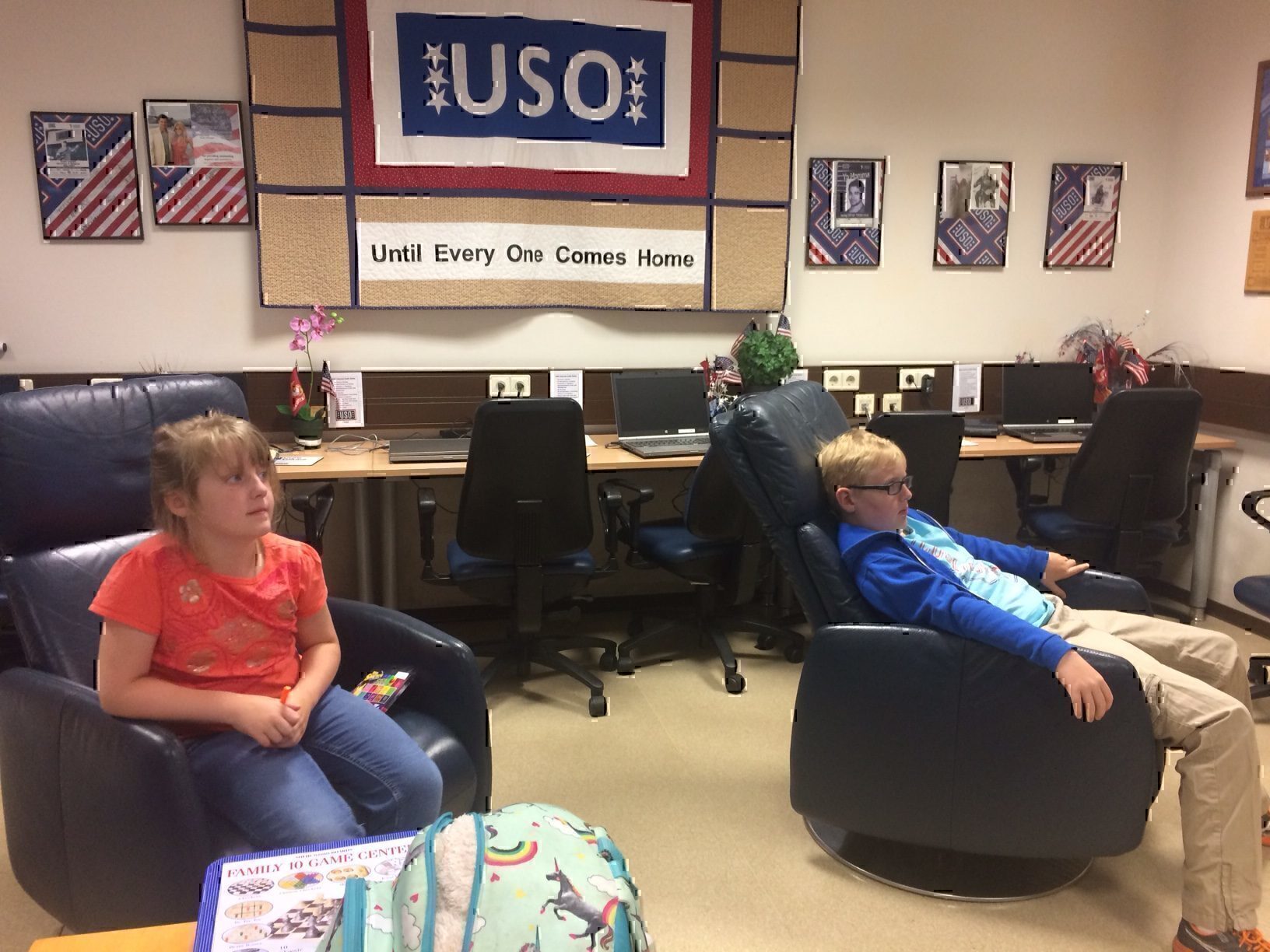
We flew back on a C-17 – my kids thought this was best flight ever – directly to Andrews AFB where an ambulance bus drove us and most of the other passengers directly to Walter Reed. It was there where I was first introduced to the power of the Fisher House.
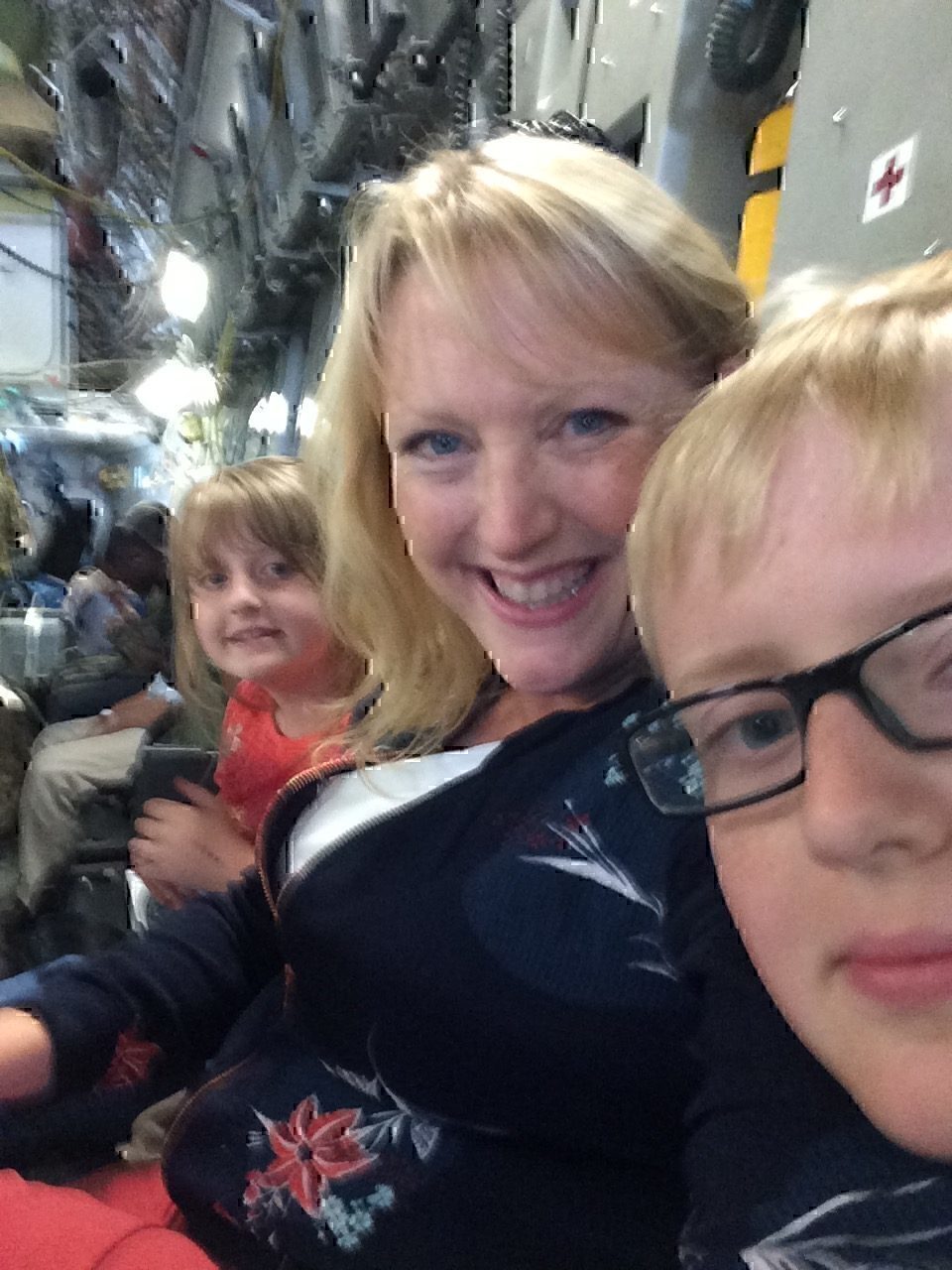
Each house offers suites – a large room with a bed and a private bathroom. They offered large community places like kitchens, family and dining rooms. The house is decorated in a gorgeous yet calming theme. Warm, peaceful colors welcomed our tired family. The halls were wide and ceilings were tall – It had a feel of independence although we shared the house with a dozen other families. The upscale details were everywhere – rugs, custom molding, book shelves, beautiful décor, wood floors, outfitted playrooms, family rooms, kitchens, and multiple large expensive dinning room tables. It was hard to remember that we were on a military installation–
…it had that military spouse touch for making every house feel like a home.
Every thing has a purpose, a meaning, a reason – but it’s not obvious at first glance. The hallways are wide to accommodate wheelchairs, the kitchen is meant to be large – really large, so multiple families can prepare and cook food. The “community” rooms are big and spacious to give you a place to be near people so you’re not alone without feeling burdened to talk or feel over crowded.
Early the next morning after we arrived, with my children still asleep, I wandered into the kitchen with hesitation, not really understanding how I belonged. Scattered in corners were other family members, quiet but smiled. They could sense I was new. I fumbled around the kitchen trying to find my drawer. Each cabinet is labeled with a room number, each refrigerator has drawers and baskets with room numbers on them where families store their family’s food. Because we had just arrived, we didn’t have any.
After undoubtedly looking lost and hungry, a sweet woman helped me discover the kitchen and explained the ins and 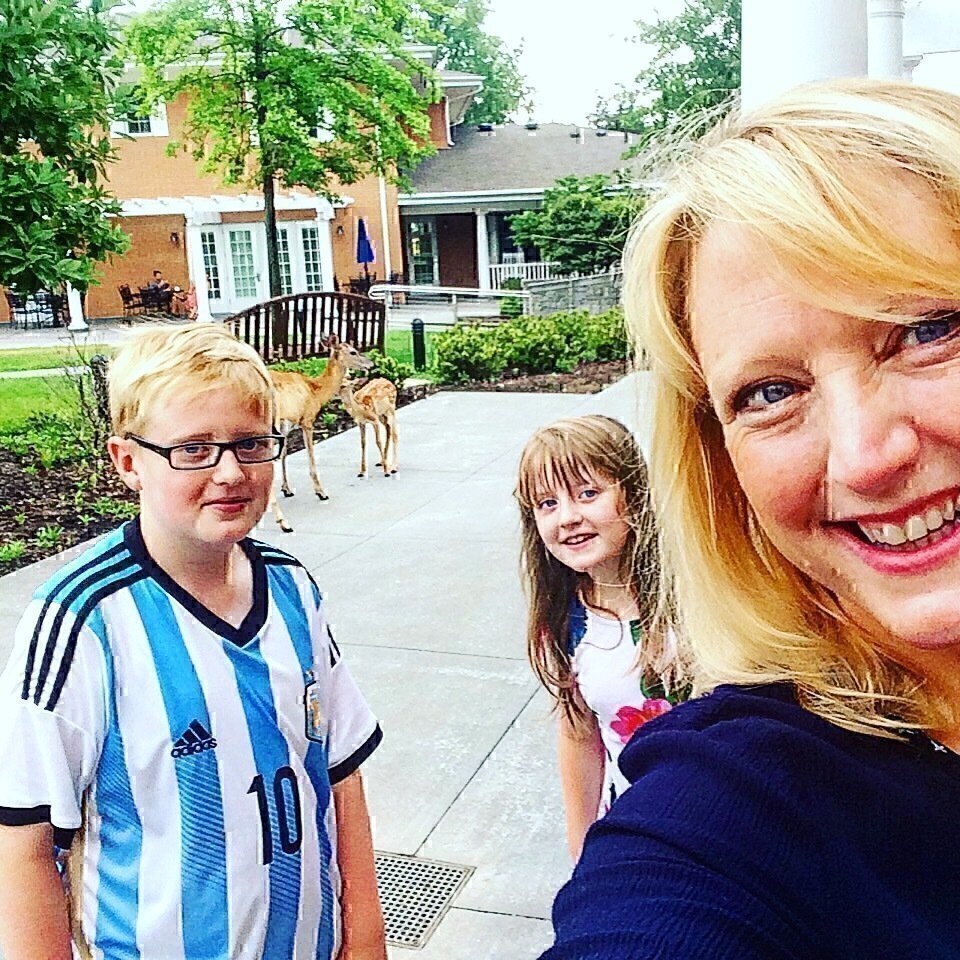
Another family joined us in the kitchen. A man just arrived from a Naval base in Japan with his family, he was a lost as I was. We made for fast friends being new and from abroad. His newly born daughter had a defective heart, he was MEDEVAC’d from Japan to Walter Reed with his wife and two other children. He looked exhausted. I felt the overwhelming need to help him adjust. I gave him our spare sleeping bag so he didn’t have to sleep four in bed. I would buy little snacks and fresh fruit over the next week and placed them in his drawer in the kitchen. He had just arrived the day before me, but expected to stay for the next several months until his infant daughter was old enough to have surgery.
Later that afternoon, the kitchen became a hub for people. I met another family member who had arrived from all the way from Dubai for medical care. Her daughter had a rare medical condition and she was in the process of undergoing multiple surgeries. We spent several hours going over quick recipes in a pinch and how far of a walk they commissary might be. They had been living at the Fisher House for nearly a year.
Another family entered the kitchen near dinnertime. An Army soldier had just laid his veteran twin brother to rest after a long bout of cancer. He was active duty, stationed in Texas. He was just here at Walter Reed to say to goodbye to his twin. He looked tired, too, but managed a smile for me and offered his help in anyway. He had stayed three weeks, but now headed home for his reason for being here was now in heaven.
Later than night, during a mean card game of UNO with my kids, another family member arrived home. She was retired military, suffering from cancer. She was here alone, without family while undergoing treatments. She was quiet, but offered a gentle squeeze to my hand and a smile when she met my daughter. She had been here for more than six months.
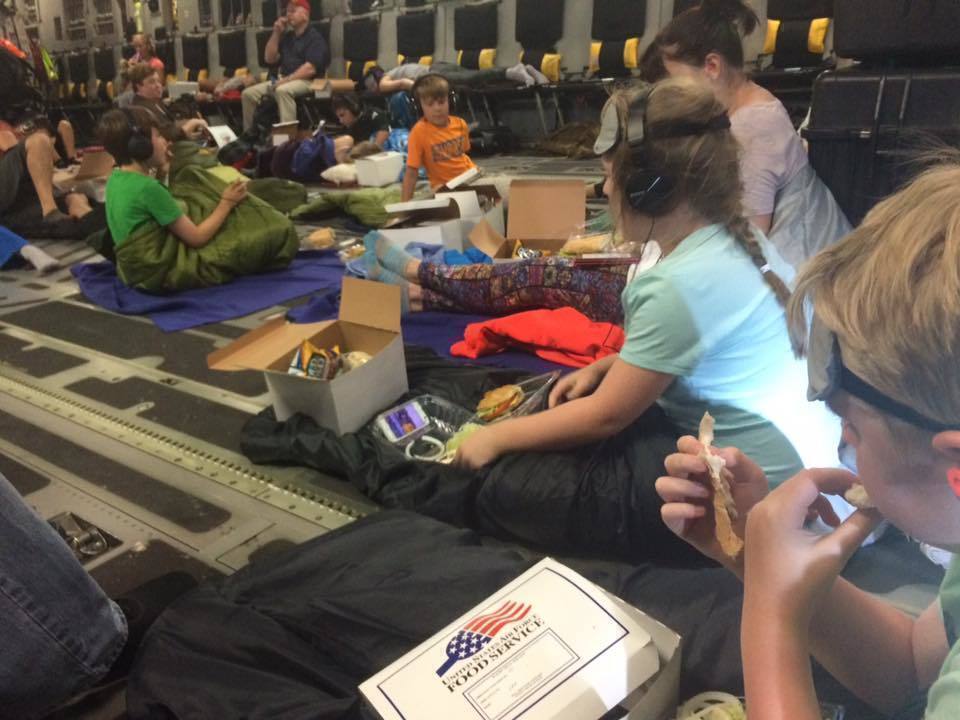
There were lots of donated items available to us. My daughter received a homemade blanket from the Red Cross – she loved it immediately. Bags and bags of toiletries, water, and snacks. Companies and restaurants catered a meal a week for all five Fisher Houses- all so generous. But I realized there were things I needed that weren’t easily available. I needed staples for cooking and better access to fresh fruits and vegetables.
When donating to the Fisher House next time, consider donating fresh fruits and vegetables, healthy snacks, board games, puzzles, dvd movies, sturdy unisex kids toys, inflatable mattresses or sleeping bags, and common pantry items like salt and pepper, olive oil and spices. Although there was a community cabinet, not everything was available. No one wants to eat out for a month. Cooking is the only way to ensure living healthily through stressful times.
There were many stressful days, but my little family was able to come home to a quiet house full of extended family. Everyone was happy to see us, welcomed conversation if we wanted and understood if we just needed to be alone. They were concerned about our day, each ready to help if needed. We cooked together, played together, and talked with other every day. They knew inner worries, were there with me for every appointment and procedure, waiting to hear good news at the end of the day. They were the family I needed to come home to.
For us, the news was more than good –it was wonderful. Thank goodness for American medicine. It’s the best the world, it may not be perfect, but there is NO doubt Americans have access to the best form of medical care out there. And military service members and families, well, the medical teams that serve with us are the best in world. This experience gave me a heavy and much needed perspective and I will be forever grateful to the military doctors, nurses, flight crews and staff the work to support us.
I will always remember my extended Fisher House family with love and admiration. My daughter walked out healthy and whole, I pray my house mates will as well one day soon.
Our experience at the Fisher House was a life changing experience. I’ve been a writer for many years, I’ve covered many angles and stories of military life. However, none of my stories more powerful than those of wounded warriors and their families. I’ve written about a few, I’ve known many more. Walking in their shoes, flying the same MEDEVAC planes and living in the same Fisher House as them gave me insight into their very personal experiences.
The Fisher House is the one of the only charities that truly focuses on the whole family. For now on, all my time and money will go to support such an amazing organization whose good deeds are never really seen, but felt from the moment you walk through the pretty front door. But, then what else would you expect from a place born from the hearts of military spouses?
Did you know?
These Fisher House homes are located at major military and VA medical centers nationwide, close to the medical center or hospital they serve. Fisher House homes have up to 21 suites, with private bedrooms and baths. Families share a common kitchen, laundry facilities, a warm dining room and an inviting living room. Fisher House Foundation ensures that there is never a lodging fee. Since inception, the program has saved military and veterans’ families an estimated $320 million in out of pocket costs for lodging and transportation.
- Families served: More than 27,000 in 2015
- Daily capacity: 931 families
- Families served: More than 277,000 since inception
- Number of lodging days offered: Over 6 million
Want to know more about the Fisher House Foundation or how you can support them? Check out their website and find a Fisher House near you.

